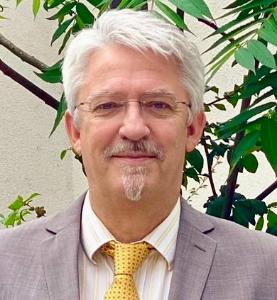The Christian Democrats of CDU/CSU have achieved a clear victory in the German elections. They received 28.6% of the votes and secured 208 seats in the Bundestag, which will have a total of 630 members. In the 299 electoral districts, they won as many as 62% of the direct mandates. This marks a change in government from the "traffic light" coalition of Social Democrats (SPD), Greens, and Liberals (FDP), which collapsed in early November 2024, to a Black-Red “Germany coalition" of CDU/CSU and SPD. The Union was predominantly supported by voters over 45, where it reached 33%, and among those over 70, it even garnered 43%. Additionally, self-employed individuals voted for CDU/CSU at a rate of 35%.
The leading candidate of the Union parties, Friedrich Merz (69), will begin coalition negotiations with the SPD, which came in third place with only 16.4% (120 seats). This is by far the worst election result for the SPD since 1949. Federal Chancellor Olaf Scholz narrowly won his electoral district in Potsdam but will no longer play a leading political role.
The partially far-right Alternative for Germany (AfD) secured 20.8% of the votes (152 seats), coming in second place. It has replaced the SPD as the party of the working class and socially disadvantaged, winning 38% of votes among workers and 39% among those facing financial difficulties. AfD also performed disproportionately well among voters aged 25 to 44 (25%) and among citizens with basic or intermediate education (28-29%). Overall, it doubled its electoral result compared to the last federal election in 2021, making it undeniably one of the election’s victors. AfD dominates in Eastern Germany, where it is the strongest party in the five eastern federal states with 36.2% of the vote, securing 42 out of 45 direct mandates.
The Greens lost more than a fifth of their support and, with their leading candidate, outgoing Vice-Chancellor and Minister for Economic Affairs Robert Habeck, finished in fourth place with 11.6% (85 seats).
An election surprise was the partially far-left party Die Linke. The post-communist party (formerly SED until 1990 and PDS until 2007), from which the Sarah Wagenknecht Movement (BSW) split in early 2024, managed to improve its result from 4.9% in 2021 to 8.8% (64 seats), thanks in part to a successful digital campaign. It gained particularly strong support from young voters—25% among those under 24 and 16% among those up to 34. In contrast, BSW narrowly missed the 5% electoral threshold with 4.97% and thus, like the FDP (4.3%), will not be represented in the Bundestag. The Liberals paid a high political price for having played a key role in enabling these early elections.
The Bundestag will also include one representative from the Frisian-Danish minority in Schleswig-Holstein. Voter turnout was 82.5%, 6.1 percentage points higher than in 2021, marking the highest participation rate since German reunification in 1990.
|
Election |
CDU/ CSU |
AfD | SPD | Greens | Linke | BSW | FDP | Other |
|
2025 |
28,6 | 20,8 | 16,4 | 11,6 | 8,8 | ----- | 4,3 | 4,4 |
|
2021 |
24,2 | 10,4 | 25,7 | 14,7 | 4,9 | 4,97 | 11,4 | 6,3 |
|
+/- |
+4,4 | +10,4 | -9,3 | -3,1 | +3,9 | +4,97 | -6,1 | -1,9 |
|
Seats |
208 | 152 | 120 | 85 | 64 | --- | --- | --- |
It is interesting to have a look at the voter shifts:
CDU/CSU gained 1.76 million voters (3.6%) from the SPD, 1.35 million (2.7%) from the FDP, 0.9 million (1.8%) from previous non-voters, and 0.46 million (0.9%) from the Greens. However, the Union lost 1.01 million (2%) to the AfD. Thus, their goal of weakening AfD was not achieved—on the contrary, while they gained centrist voters, the far-right strengthened.
AfD attracted 1.81 million (3.7%) former non-voters, 1.01 million (2%) from CDU/CSU, 0.89 million (1.8%) from the FDP, and 0.72 million (1.5%) from the SPD.
SPD lost the most to the center and right—1.76 million voters (3.6%) to CDU/CSU and 0.72 million (1.5%) to AfD. Additionally, it lost 0.56 million (1.1%) to Die Linke and 0.44 million (0.9%) to BSW.
For CDU/CSU, the only viable governing option is a coalition with SPD, as a coalition with the Greens would not have a majority, and alliances with the radical parties AfD and Die Linke have been ruled out. A concerning fact is that the radical parties—AfD, Die Linke, and BSW—together received more than a third of the votes. The political center, consisting of CDU/CSU, SPD, and the Greens, has weakened, holding only 56.6% of the vote.
The Christian Democrats now face the challenge of implementing the promised political shift, but they depend on cooperation with the SPD, which previously led the government. If they fail, radical parties could gain even more strength. In any case, the likely new Chancellor, Friedrich Merz, has already announced a stronger leadership role for Germany in the EU as well as domestic reforms.



